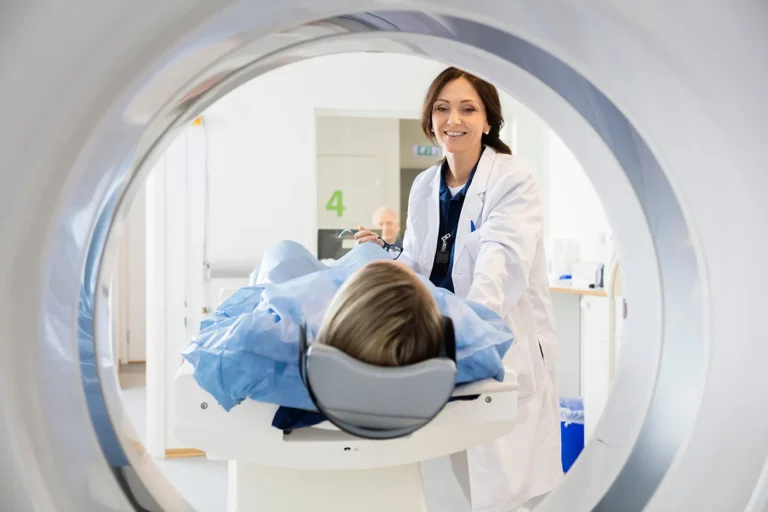
What is a PSMA PET/CT scan?
PSMA PET is a diagnostic scan that uses a type of medical imaging called positron emission tomography (PET) to detect prostate cancer anywhere in the body. PSMA stands for prostate specific membrane antigen, a protein found on the surface of prostate cancer cells. PET PSMA offers enhanced precision in detecting prostate cancer, thereby aiding in improved treatment planning and more precise targeted care.
PSMA PET can be used to stage your prostate cancer prior to treating it. It can also be used to detect a recurrence of your prostate cancer after treatment is completed. Your physician can determine whether you are a candidate for PSMA PET imaging.
How do I get ready for a PSMA PET/CT scan?
- You do not need to fast (avoid eating) before the test.
- Drink plenty of water before the test.
- You must confirm your appointment with our office the day prior to the scan.
- A pharmaceutical dose is ordered specifically for your appointment time. If you are unable to keep your appointment, please notify our office 24 hours in advance.
What to expect the day of the PSMA PET/CT scan
- Please wear comfortable clothing. If you wear anything metal, you will be asked to remove it. It is best to leave your jewelry and valuables at home.
- You will be given a radiotracer through an intravenous (IV) line in your arm. There are no dyes/contrasts involved.
- You will be asked to relax in a room in a recliner for 45 minutes – 1 hour.
- Next, we will ask you to lie on a narrow, padded table that slides into the scanner. The technologist will leave the room, but they will be able to see and hear you.
- During the scan you will need to lie very still because movement can affect the results.
- The scan itself will take about 30-40 minutes. The entire process will take about two hours.
After your PSMA PET/CT scan
Most people can return to their normal activities immediately after a PET/CT scan. A very small amount of the tracer will remain in your body, so be sure to drink plenty of water to help flush it out of your system.
Reactions & Risks
Doctors have used radiotracers to diagnose disease for more than 50 years, and there are no known long-term adverse effects of these procedures. Rarely, the radiotracer causes an allergic reaction.

